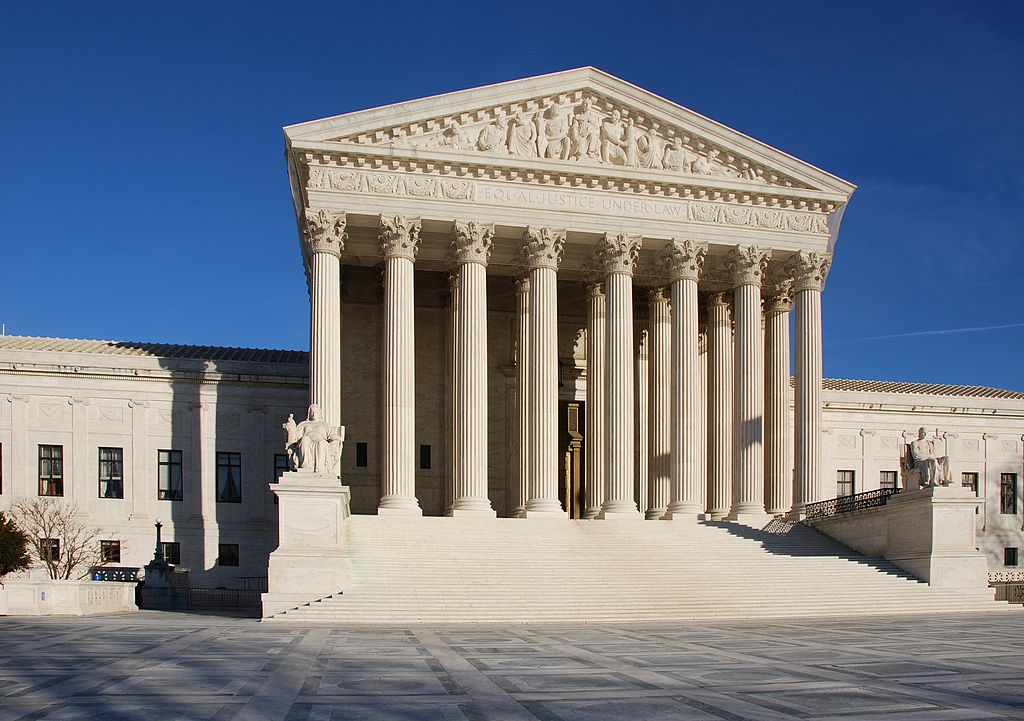On June 15, the Supreme Court of the United States (“SCOTUS”) granted review in two cases for its upcoming October 2020-2021 term.
The Supreme Court will begin hearing cases for the term on October 5, 2020. The court’s yearly term begins on the first Monday in October and lasts until the first Monday in October the following year. The court generally releases the majority of its decisions in mid-June.
Albence v. Guzman Chavez
The case Albence v. Guzman Chavez came on a writ of certiorari to the U.S. Court of Appeals for the 4th Circuit. It concerns the Immigration and Nationality Act of 1952 and the statutory authority under which the government detains immigrants seeking to overturn deportation after a reinstated removal order. As of June 16, 2020, the case’s argument date was pending.
The case: The case originated in a dispute over whether the respondents, a group of immigrants detained by the U.S. government pending deportation proceedings, could seek release in bond hearings before immigration judges. The government argued that they could not seek release, because 8 U.S.C. 1231 subjected the immigrants to mandatory detention. The immigrants argued that 8 U.S.C. 1226 allowed them to seek release via bond hearings. The U.S. District Court held the respondents were detained under 8 U.S.C. 1226 and ordered the government to provide bond hearings. On appeal, the 4th Circuit upheld the district court’s ruling.
The issue: Whether the detention of an alien who is subject to a reinstated removal order and who is pursuing withholding or deferral of removal is governed by 8 U.S.C. 1231 or by 8 U.S.C. 1226.
Henry Schein, Inc. v. Archer and White Sales Inc.
The case Henry Schein, Inc. v. Archer and White Sales Inc. originated from the U.S. Court of Appeals for the 5th Circuit and concerns arbitration agreements. As of June 16, 2020, the case’s argument date was pending.
The case: In 2012, Archer & White Sales, Inc. filed a lawsuit in magisterial court against Henry Schein, Inc. alleging that the company violated the Sherman Antitrust Act and the Texas Free Enterprise and Antitrust Act. Henry Schein, Inc. filed motions to compel arbitration and stay all proceedings. The magistrate judge granted the defendants’ motions. In 2016, the U.S. District Court for the Eastern District of Texas reversed and vacated the magistrate judge’s ruling and issued an order denying the motions to compel arbitration. On appeal, the U.S. Court of Appeals for the 5th Circuit upheld the district court’s order. In 2018, Schein appealed to the Supreme Court, which vacated the 5th Circuit’s ruling and remanded the case. On remand, the 5th Circuit affirmed the district court’s denial of motions to compel arbitration. In 2020, Schein petitioned the Supreme Court for review.
The issue: Whether an arbitration agreement provision exempting certain claims from arbitration negates an otherwise clear and unmistakable delegation of arbitrability questions to an arbitrator.
As of June 16, 2020, the court had agreed to hear 22 cases during its 2020-2021 term. Of those, 12 were originally scheduled for the 2019-2020 term but were delayed due to the coronavirus pandemic.
Additional reading:



